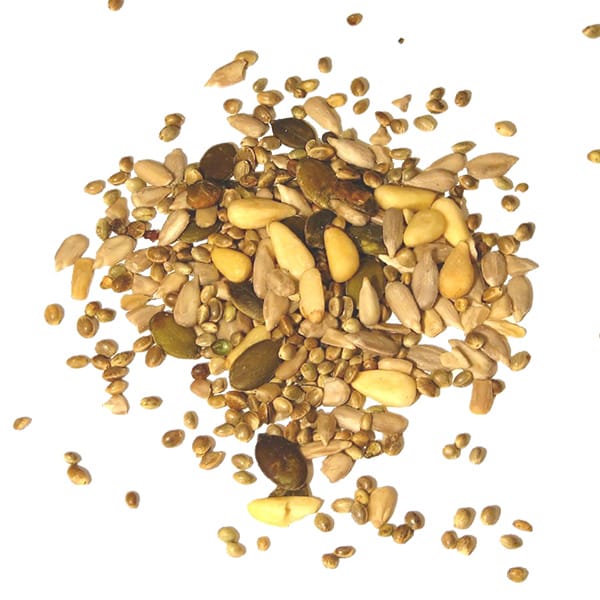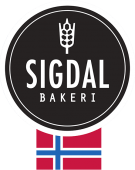
10 seeds beneficial to our health
1- The quinoa seed
Quinoa is a popular reference for vegans and other gluten intolerant people. Pseudo-cereal, quinoa contains a large quantity of high quality proteins and unsaturated fatty acids. An antioxidant source of fibre, vitamins and minerals, it helps prevent cardiovascular disease and diabetes.
Preparation: It is important to rinse the quinoa seeds well before cooking to remove any residue that may give them a bitter taste. Cook for 20 minutes in water until the seeds are translucent. You can also dry roast the grains in a pan before cooking in water to bring out their flavour.
Use: Quinoa can replace other grains in almost all recipes: tabbouleh salad, couscous, risotto....
2- Pumpkin seed
Diuretic is the seed of urinary comfort. By fighting bladder irritations, such as urinary tract infections, it is a real asset for women almost exclusively affected by the problem. Rich in iron, it fights anaemia, fatigue and strengthens the immune system.
Use: You can simply chew it or sprinkle the equivalent of a teaspoon in a salad or in our bowl of muesli in the morning.
3- The poppy seed
Filled with vitamin B1, the poppy helps the nervous system to function properly. Its seed is also rich in good fats. Producing morphine and codeine, it has soothing virtues. Widely used in Central Europe, it would allow to fight against the cold.
Use: To sprinkle everywhere! In a salad, on cheese, on a hot pie or bread ... We also add the seeds to our puree, our pasta. Ground, they have a thickening power.
4- Sesame seed
Sesame seed is rich in essential fatty acids, iron, protein and antioxidants. It protects the cardiovascular system, cell membranes and facilitates transit.
Use: The iron contained in the seed is assimilable with vitamin C, to be consumed for example with an orange. In oriental pastries, a salad, on fish or white meat, you can sprinkle the equivalent of a tablespoon. Be careful, sesame seed can be allergenic.
5- The sunflower seed
It contains manganese, a trace element that promotes digestive metabolism and fights against allergies. Packed with vitamin E, whose antioxidant properties protect the skin's cell membranes, sunflower seed prevents the signs of aging.
Use: delicious dry-roasted, it adds crunch to salads, soup, or a bowl of muesli.
6- Spelt seed
Spelt is mainly eaten in the autumn, from August to November. It is made up of several minerals such as zinc, iron, copper, magnesium, which gives it anti-stress properties, and calcium, which represents about a quantity of two glasses of milk per 100 g.
Spelt is an excellent food for the effort in part thanks to its high protein and carbohydrate content; the latter, being particular, promotes intestinal transit and stimulates the immune system to increase resistance to infections. Finally, this cereal is made up of an excellent quality gluten since it has not been subjected to varietal selection like wheat. Thus, it allows a better tolerance of this molecule by people allergic to gluten.
Use: This cereal is found in many forms: semolina, flakes, flour, corn flakes, sourdough, etc.. Thus it is eaten in many ways: in soups, cold rice or pasta salads, as an accompaniment to fish or meat.
7- Flaxseed
Rich in omega-3 and omega-6, known as "natural fatty acids", flax contributes to the proper functioning of the cardiovascular, cerebral, inflammatory and hormonal systems. Its omega-6 promotes skin elasticity and hydration and its fibres optimise transit.
Use: One teaspoon to sprinkle on white meat, vegetables, but also on cereals such as muesli for breakfast. It can also be ground and incorporated into pie dough. Be careful to eat it quickly, flaxseed spoils quickly. Once oxidized, it will not be as effective.
8- Buckwheat seed
Buckwheat seed has many advantages, including being gluten-free. It is also a great source of essential amino acids and vegetable proteins. Finally, its low glycemic index will provide you with energy all day long, without a peak!
Use: In Brittany, buckwheat is known especially for its flour, in our pancakes, but it is also eaten plain, in its seed form, which is cooked in the same way as rice. Buckwheat can be cooked for breakfast, lunch, aperitif or dinner, making it a very versatile food!
9- The chia seed
Thanks to the fibre and omega-3s it contains, the feeling of satiety is quickly felt, making it a very good natural appetite suppressant. The chia seed reduces bad cholesterol and improves the treatment of diabetes. It promotes transit and prevents irritation of the intestinal mucous membrane.
Use: It can be ground and sprinkled into our cake or pie doughs.
10- Nigella seed
Nigella is also called black cumin. With its natural antibiotics, it strengthens the immune system and fights against respiratory infections by creating a barrier against colds. Detoxifying and invigorating, it can also relieve rheumatism.
Use: With its slightly bitter taste, it accompanies potatoes or rice, as well as a mixed salad or raw vegetables.

